Israel unleashes as top Hezbollah commander killed
Hezbollah is reeling after Israel launched mass air strikes, killing a top leader of the Lebanese terrorist group just days after thousands of its fighters were disabled by Mossad’s exploding pagers and walkie-talkies.
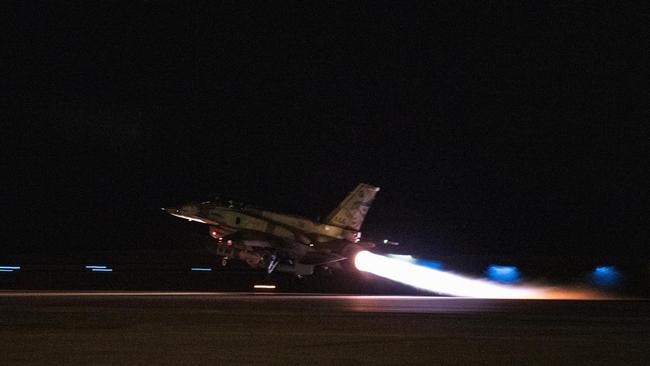
Hezbollah is reeling after Israel launched mass air strikes against the Lebanese terrorist group, killing “one of its great leaders”, just days after thousands of its fighters were disabled by Mossad’s exploding pagers and walkie-talkies.
Ibrahim Aqil was killed after Israeli fighter jets unleashed a furious and targeted attack on Beirut on Friday, killing the top Hezbollah leader and 10 operatives just days after a series booby-trapped pagers and walkie-talkies were detonated, killing more than 30 and injuring almost 3000 on September 17.
Aqil, who was wanted by the United States for involvement in the 1983 bombing of the US embassy in Beirut, headed the Iran-backed militant group’s elite Radwan Force.
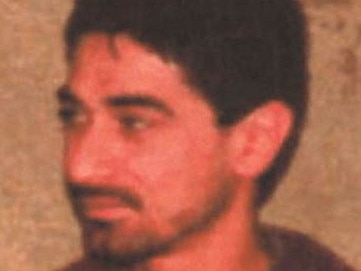
Journalists at the scene said the blast left a massive crater and gutted the lower floors of a high-rise building in the Lebanese capital’s southern suburbs.
Rescue workers were still using heavy equipment to search the rubble hours after the strike, AFPTV footage showed.
Aqil’s killing was the second of a senior Hezbollah commander since the start of the war in Gaza. Another Israeli strike in Beirut in July killed Fuad Shukr, a top operations chief for the movement.
The US had offered a $US7 million reward for information on Aqil, describing him as a “principal member” of an organisation that claimed the 1983 embassy bombing, which killed 63 people.
Hezbollah vows to avenge attacks
In the most dramatic and dangerous week in the Middle East since the October 7 massacre, Hezbollah leader Hassan Nasrallah claimed Israel’s attacks were “a declaration of war” and vowed to avenge them.
But even as he was speaking, Israeli fighter jets roared over Beirut, creating terrifying sonic booms and underlying Israel’s sudden ascendancy in its fast-escalating conflict with the Iranian-backed group.
The United Nations has denounced the device blasts, saying the action could constitute a war crime, as Beirut’s top diplomat accused Israel of orchestrating what he called a “terror” attack.
The blasts that killed dozens across Lebanon over two days is “an unprecedented method of warfare in its brutality and terror,” Lebanese Foreign Minister Abdallah Bou Habib told the United Nations Security Council, calling the attack “nothing but terrorism”.
Israel followed up the unprecedented success of its mass explosions of the Hezbollah devices – which killed 37 and injured around 3000 fighters and affiliates – with one of the largest air strikes since October 7.
Israel crossed red line, says Iranian ambassador
Amir Saeed Iravani, the Iranian envoy to the United Nations, said on Friday that Israel crossed a “red line” by targeting the Iranian ambassador in Lebanon.
According to a CNN report quoting Iranian state media, Mojtaba Amani, Iran’s ambassador to Lebanon, was among those wounded in Beirut after the wave of deadly pager explosions, along with two embassy employees.
Amani sustained a superficial injury and received medical attention, Iranian state news agency IRNA said, citing the ambassador’s wife.
Speaking in the United Nations Security Council on Friday, Iravani also accused the United States and its allies, namely the United Kingdom, of creating an “environment of impunity” for Israel.
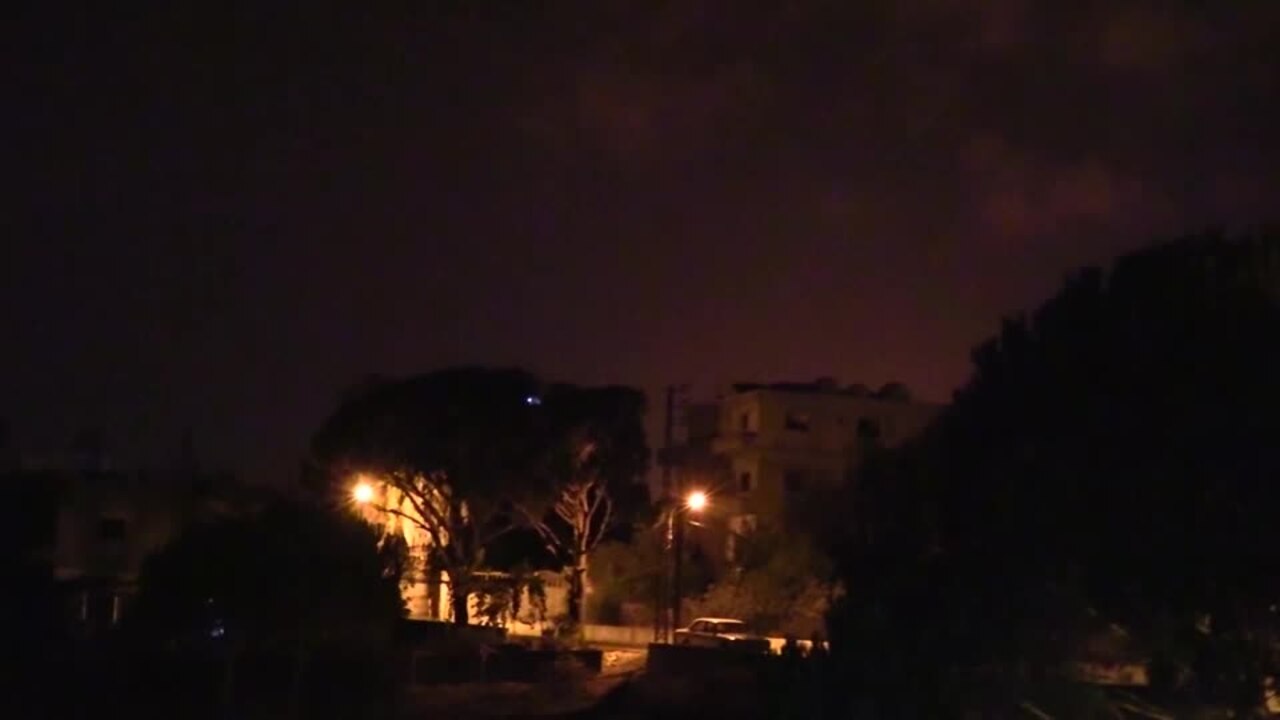
Sharp escalation
Israeli warplanes conducted 70 air strikes against around 100 Hezbollah rocket launchers – consisting of approximately 1000 barrels – in southern Lebanon in a sharp escalation of their low-level conflict that has run for the past 11 months.
Lebanon’s state-run National News Agency said Israel struck the south at least 52 times.
Hezbollah also said it had conducted 17 strikes into Israel, while the Israeli military said that two of its soldiers had been killed in combat in northern Israel.
In a televised address, his first since the Mossad pager and walkie-talkie attacks this week, Nasrallah said Israel would “face just retribution and a bitter reckoning”. “This criminal act is a major terrorist operation and amounts to a declaration of war … it is an act of war against the people of Lebanon, Lebanon’s sovereignty,” he said.
The terrorist leader conceded that Hezbollah had “endured a severe and cruel blow” and said “the enemy crossed all boundaries and red lines”.
He said retribution would be carried out, but added: “I will not discuss time, nor manner, nor place”. He vowed that Hezbollah would continue to attack Israel so long as the war in Gaza continued.
The Hezbollah leader’s comments came amid reports that US officials now believe there will be no ceasefire deal in Gaza before the inauguration of the next US president in January.
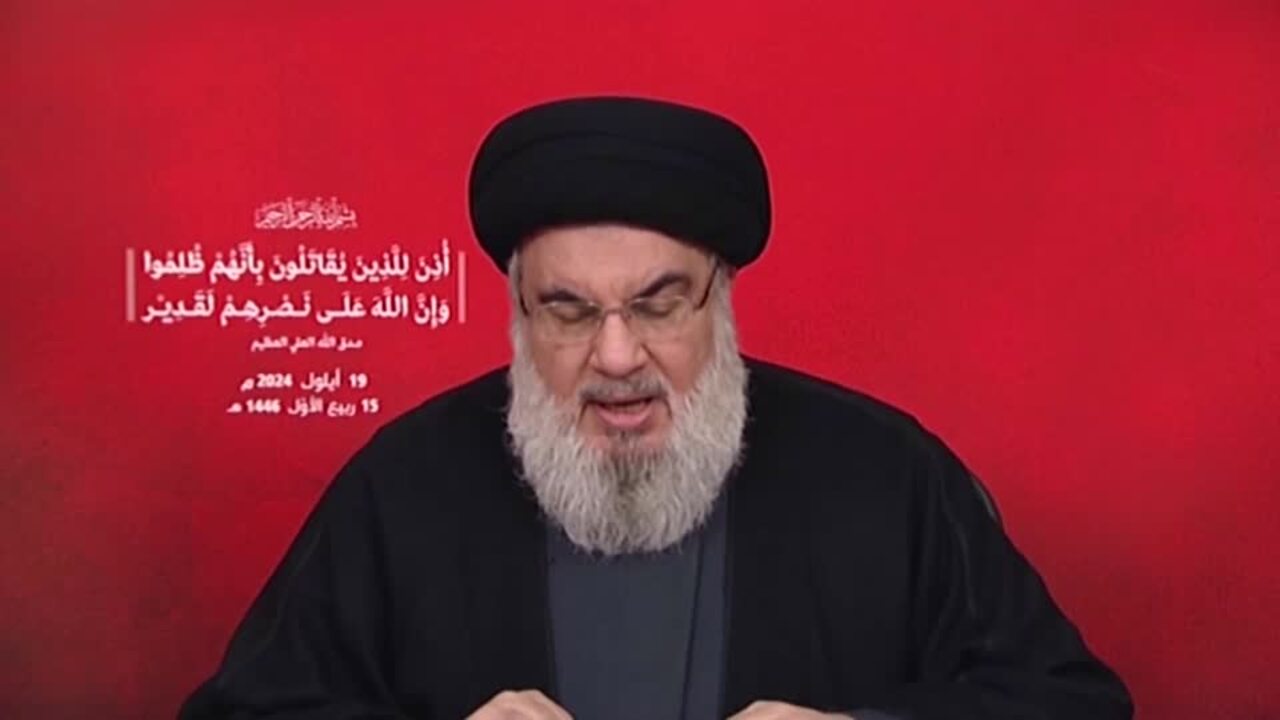
Fear of wider war
Israeli Prime Minister Benjamin Netanyahu delayed by a day his scheduled departure to the United States, where he is due to address the United Nations General Assembly.
On Friday the UN’s High Commissioner for Human Rights, Volker Turk, told the Security Council that the attack on Hezbollah communications devices violated international law and could constitute a war crime.
The pagers and walkie-talkies exploded as their users were shopping in supermarkets, walking on streets and attending funerals, plunging the country into panic.
“I am appalled by the breadth and impact of the attacks,” said Turk, adding that it “is a war crime to commit violence intended to spread terror among civilians”.
Earlier Friday, Hezbollah said it targeted at least six Israeli military bases with salvos of rockets after bombardments that people in south Lebanon described as among the fiercest so far.
Residents of Marjayoun, a Lebanese town close to the border, said the overnight bombardment was among the heaviest since the border clashes began last October.
“We were very scared, especially for my grandchildren,” said Nuha Abdo, 62. “We were moving them from one room to another.” Clothing store owner Elie Rmeih, 45, counted more than 50 strikes. “It was a terrifying scene and unlike anything we have experienced since the escalation began,” he said. “We live in fear of a wider war.”
New era
The multiple Israeli attacks on Hezbollah this week came as the Israeli government declared “a new era” in its confrontation with the terror group as it seeks to return some 60,000 displaced Israelis to their homes along the northern border with Lebanon.
Those people have been displaced by Hezbollah’s almost daily missile and drone attacks into northern Israel in support of Hamas’s war against Israel.
But Israel’s war cabinet this week said the focus of Israel’s war against terrorism would move from Hamas to Hezbollah, and it stated that the safe return of its citizens to their homes in the north was now an official war aim.
Israeli Defence Minister Yoav Gallant said Hezbollah would “pay an increasing price” going forward. He said Israel’s war with the terror group had entered “a new phase” that carried “opportunities as well as significant risks”.
Israel and Hezbollah have been engaged in almost daily tit-for-tat attacks since October 7, but both sides have been careful not to trigger an all-out war. Israeli strikes have killed around 480 Hezbollah members, including 20 commanders, since October 7. But tensions between Israel and Hezbollah have soared ever since the militia’s top military commander Fuad Shukr was assassination in Beirut in July.
The pager and walkie-talkie attacks on Hezbollah were a serious blow to the terrorist group’s morale and have underlined the extent to which Israeli intelligence has infiltrated its operations.
Although details are still unfolding, Mossad was able to secure access to thousands of pagers and hundreds of walkie talkies ordered by Hezbollah and insert small amounts of explosives and detonators into them. It was then able to detonate them en masse.
Nasrallah had ordered his group to switch to the old-fashioned pagers and walkie-talkies, believing that they posed less of a risk of being tracked by Israel than mobile phones.


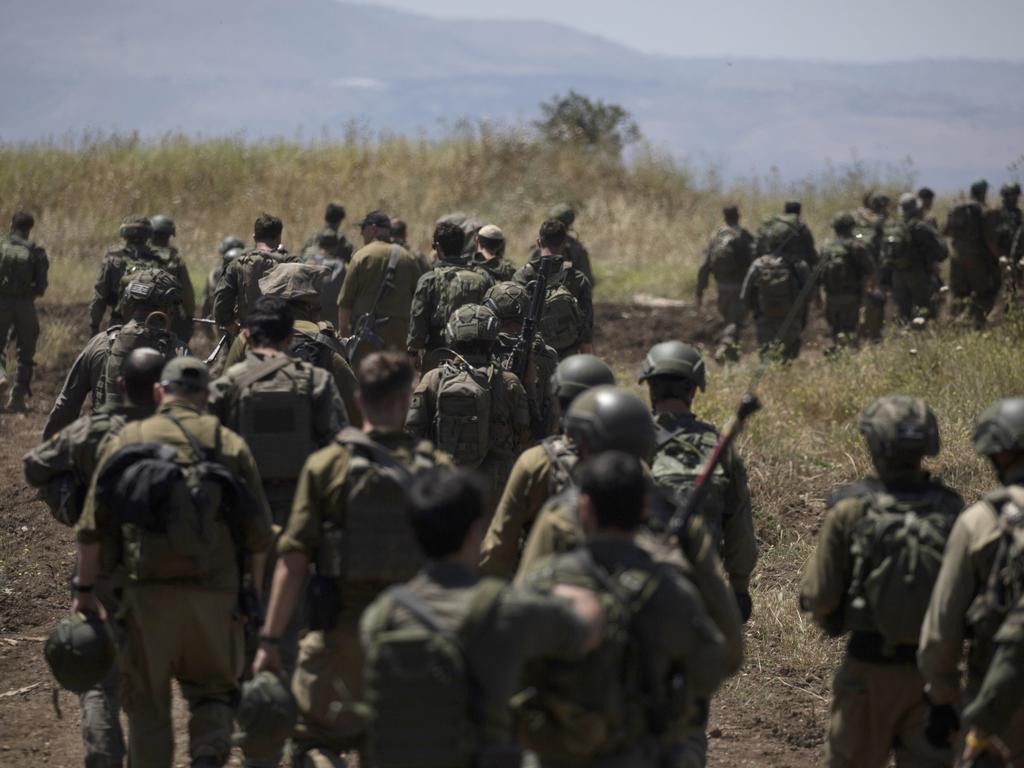
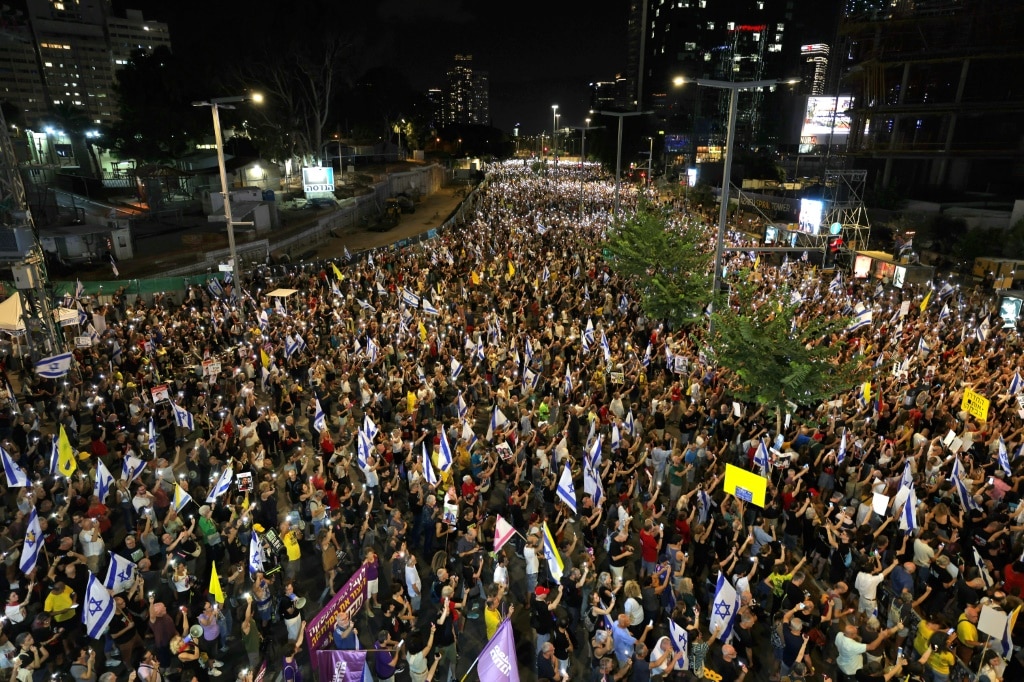


To join the conversation, please log in. Don't have an account? Register
Join the conversation, you are commenting as Logout